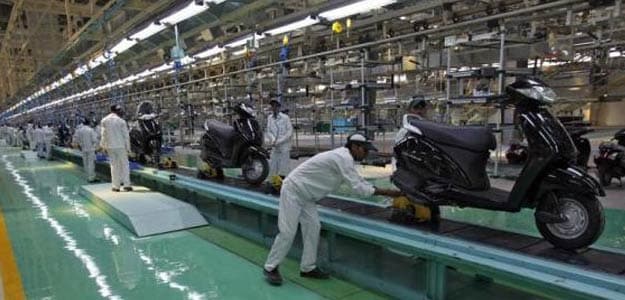RBI Repo Rate Hike: How It Will Affect Two-Wheeler Loans

Highlights
- New two-wheeler loans, EMIs set to become more expensive
- Rising fuel prices, price hike by OEMs already affecting market sentiment
- Domestic two-wheeler sales set to be under pressure in coming months
The Reserve Bank of India (RBI) on Wednesday hiked the repo rate by 0.40 per cent, from 4 per cent to 4.40 per cent earlier, while the cash reserve ratio (CRR) has been hiked by 50 basis points to 4.5 per cent. This is the first such hike in four years, and the central bank's surprise move is seen as a measure to control the persistent high inflationary pressure. Repo rate is the rate at which RBI lends short-term funds to commercial banks. An increase in repo rate means borrowing becomes costlier for banks and this in turn will make banks increase their lending rates.
Also Read: Hero MotoCorp's Q4 FY 2022 Profit Falls 28 Per Cent

India's largest two-wheeler manufacturer, Hero MotoCorp has reported a 28 per cent decline in net profit for the January to March 2022 period. The company has announced two price hikes of its products over the past 5 months.
While the repo rate hike is expected to make all loans expensive, existing two-wheeler loans (and car loans), which have fixed rates, are not expected to see any changes. But new loans (both two-wheeler and passenger car loans), will become costlier, with consumers expected to pay more, whether with fixed, or floating rates. So, even with fixed rates, new car and two-wheeler loans are expected to become more expensive in the coming months. Naturally, alarm bells are being sounded by observers for an industry already hit by record-high retail fuel prices.
Also Read: Bajaj Auto Reports Q4 FY 2022 Net Profit At Rs. 1,469 Crore
"The RBI's move of increasing repo rate by 40 bps has clearly taken everyone off guard. This move will curb excess liquidity in the system and will make auto loans expensive. While PV segment may be able to absorb this shock due to long waiting periods, the two-wheeler segment, which has been a non-performer due to underperforming rural market, vehicle price hikes and high fuel costs, it will not be able to take one more blow of high vehicle loan costs. Certainly, this move will apply certain amount of brakes on auto retail and dampen the sentiments further," said Vinkesh Gulati, President, Federation of Automobile Dealers' Association (FADA).
Some observers say that 40 bps impact on interest and EMIs will be minimal. So, overall volume outlook remains more or less the same. Overall, the two-wheeler segment is likely to have minimum impact, since 0.4 per cent hike per lakh will be around Rs. 400 overall. Still, the overall sentiment is likely to be one of caution, with rising fuel prices, as well as periodic hikes by OEMs.
Also Read: Hero MotoCorp Announces Price Hike Of Two-Wheelers

Rising fuel prices, as well as price hike by OEMs have already hit the domestic two-wheeler segment.
Improvement in rural income as well as re-opening of educational institutions and offices has seen some pent-up demand in the two-wheeler industry. However, skyrocketing crude prices, as well as rising retail fuel prices, coupled with OEMs increasing prices of two-wheelers to compensate for higher raw material costs have already added to higher costs for consumers. More expensive EMIs on two-wheeler loans, even if marginal, will likely affect market sentiment, and in turn the mass market segments of two-wheelers more in the coming months, even though it will be marginal. Many observers say a full recovery for the industry is expected only over the next couple of years, during which market challenges are likely to remain.
Latest News
- Home
- News
- Sales Figures
- RBI Repo Rate Hike: How It Will Affect Two-Wheeler Loans













